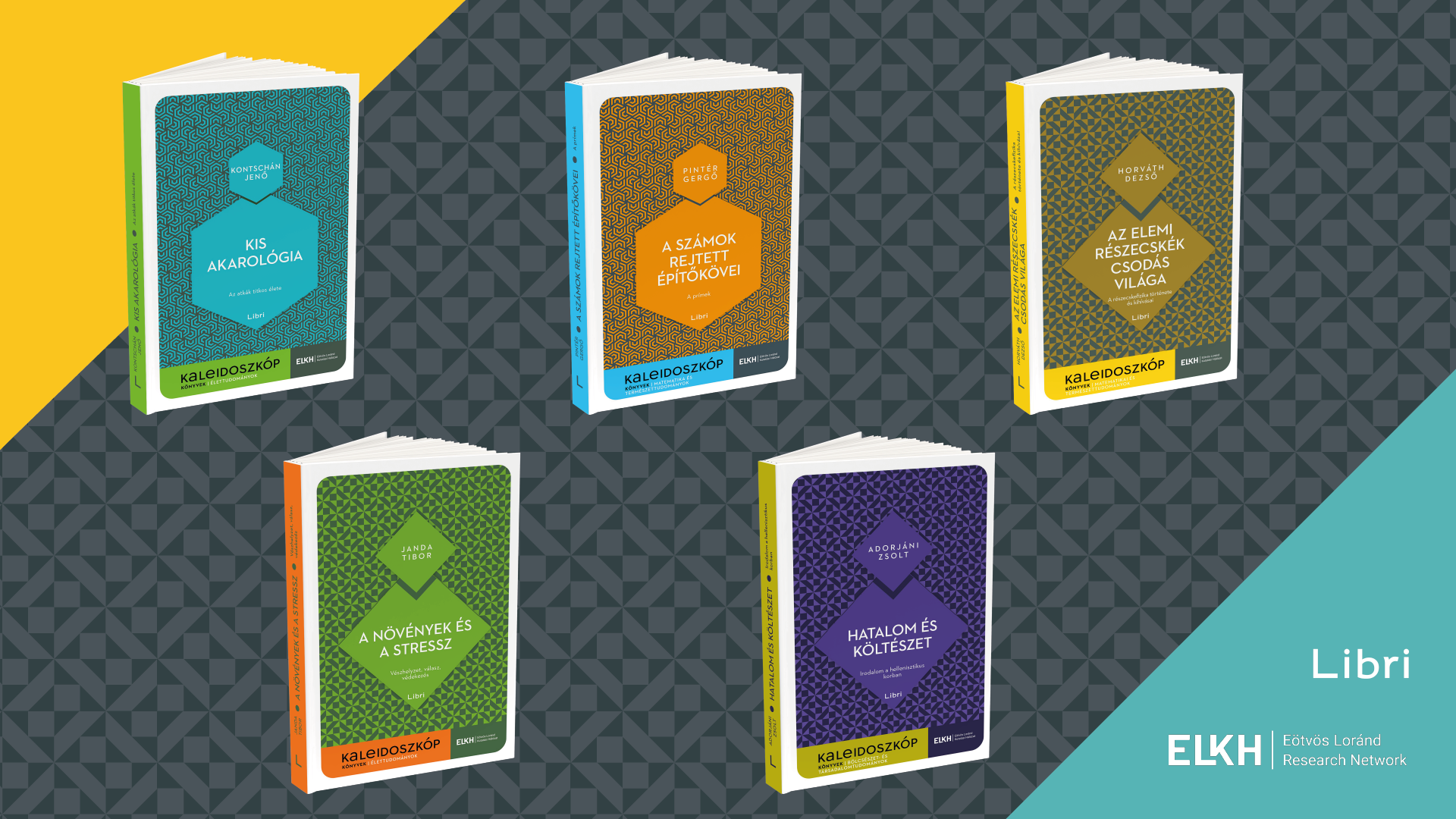
In 2022, the Eötvös Loránd Research Network (ELKH), Libri Publishing and the Foundation for Hungarian Culture jointly launched a new Hungarian educational series of scientific paperbacks entitled Kaleidoscope Books. Five new volumes are now available in Libri bookshops and online at libri.hu. The works, written by ELKH researchers, present the latest and most exciting results of domestic research in an easily understandable form for the science-interested audience.
The new volumes of the Kaleidoscope Books pocketbook series are:
Zsolt Adorjáni: Power and Poetry ‒ Literature in the Hellenistic Age
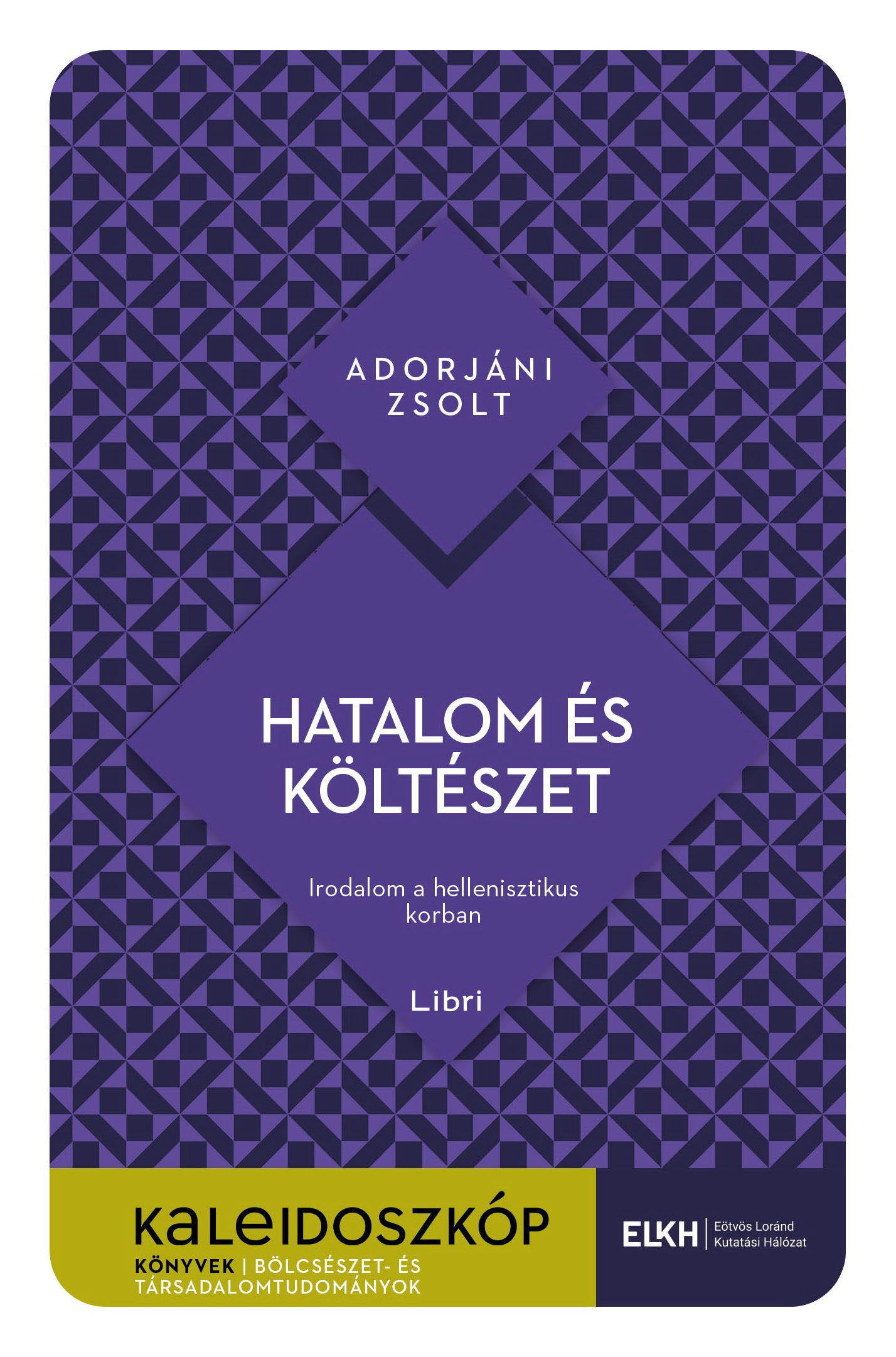
In the ruins of the empire of Alexander the Great, a flourishing culture developed in Lower Egypt in the 3rd century BC. Alexandria, the center of the kingdom was home to a number of poets whose work was associated with the city's famous library and the royal court.
How did this characteristic, this power relationship, shape the themes and expressions of poetry in that era? To what extent are the individual works related to classical literature? Did these works have an impact on future generations, and to what extent can this tradition be considered alive today? These are some of the questions that the reader can find answers to in this book, from which a long-lost culture greets the modern reader.
Zsolt Adorjáni is a classical philologist, a scientific fellow at the Gyula Moravcsik Institute of the ELKH Research Centre for the Humanities, and a lecturer at the Pázmány Péter Catholic University. His research area is classical and Hellenistic Greek literature.
For more information about the book please visit: https://www.libri.hu/konyv/adorjan_zsolt.hatalom-es-kolteszet.html
Dezső Horváth: The Wonderful World of Elementary Particles ‒ The History and Challenges of Particle Physics
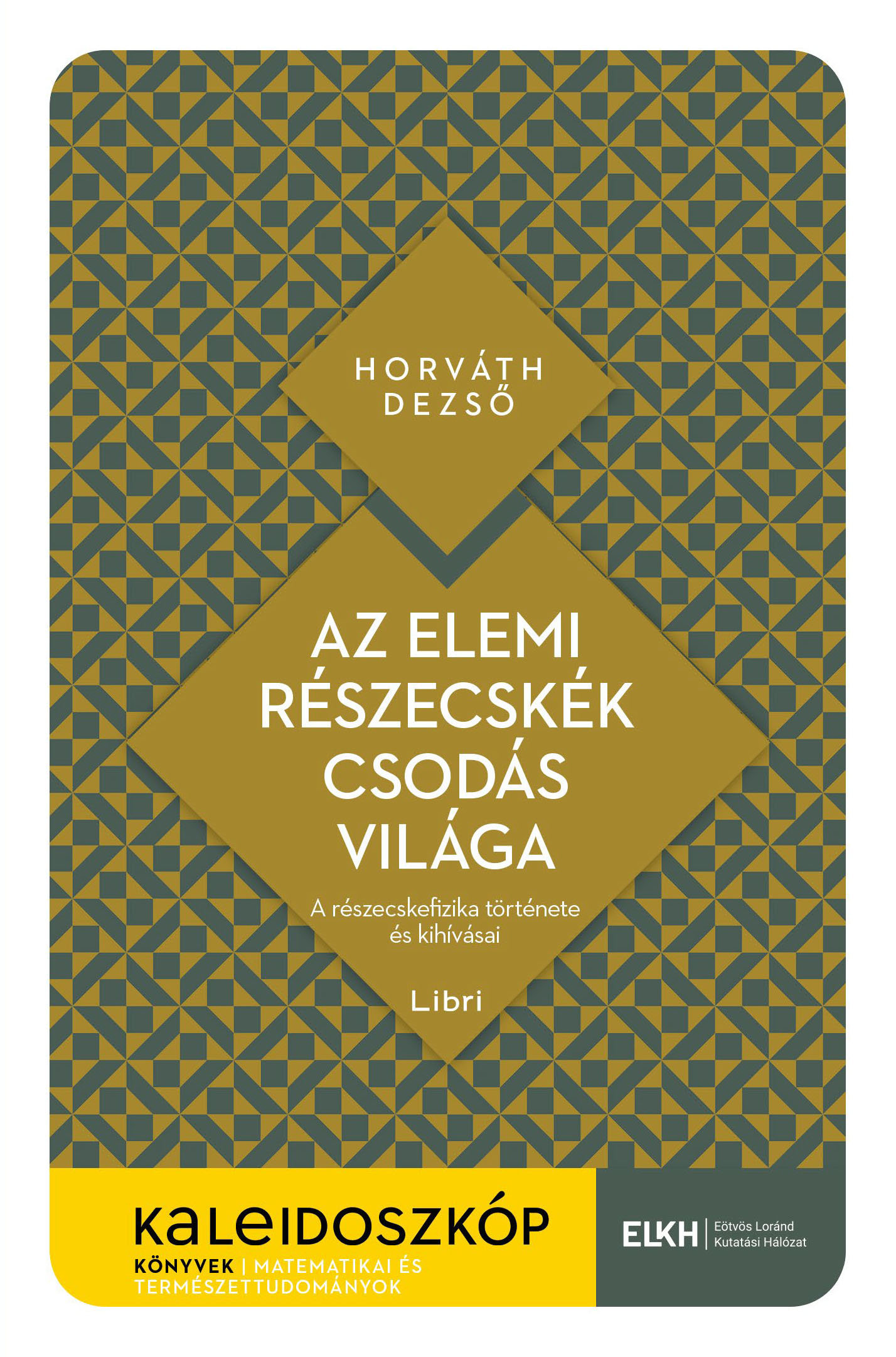
For centuries, mankind has been interested in the elemental building blocks of matter and what its smallest components are. However, the study of the micro-world continually produces new questions to be answered, but it is precisely the plethora of open questions and problems that makes this field of science so miraculous.
This publication reviews the history of particle physics, illustrating the discoveries and theories with vivid diagrams, all the way to the currently only accepted and confirmed theory, the Standard Model, but also providing an outlook on the future, outlining the problems still awaiting solutions and the possible paths of development.
Dezső Horváth is a particle physicist, a doctor of physical science, an emeritus research professor at the ELKH Wigner Research Centre for Physics, and a private lecturer of particle physics at the University of Debrecen and Babeș-Bolyai University in Cluj-Napoca. He conducted his research in Russian, Canadian, American, Swiss, and Italian research institutes. His scientific activities were recognized with the Széchenyi Prize in 2012.
For more information about the book please visit: https://www.libri.hu/konyv/horvath_dezso.az-elemi-reszecskek-csodas-vilaga.html
Tibor Janda: Plants and Stress ‒ Emergency, Response, Defense
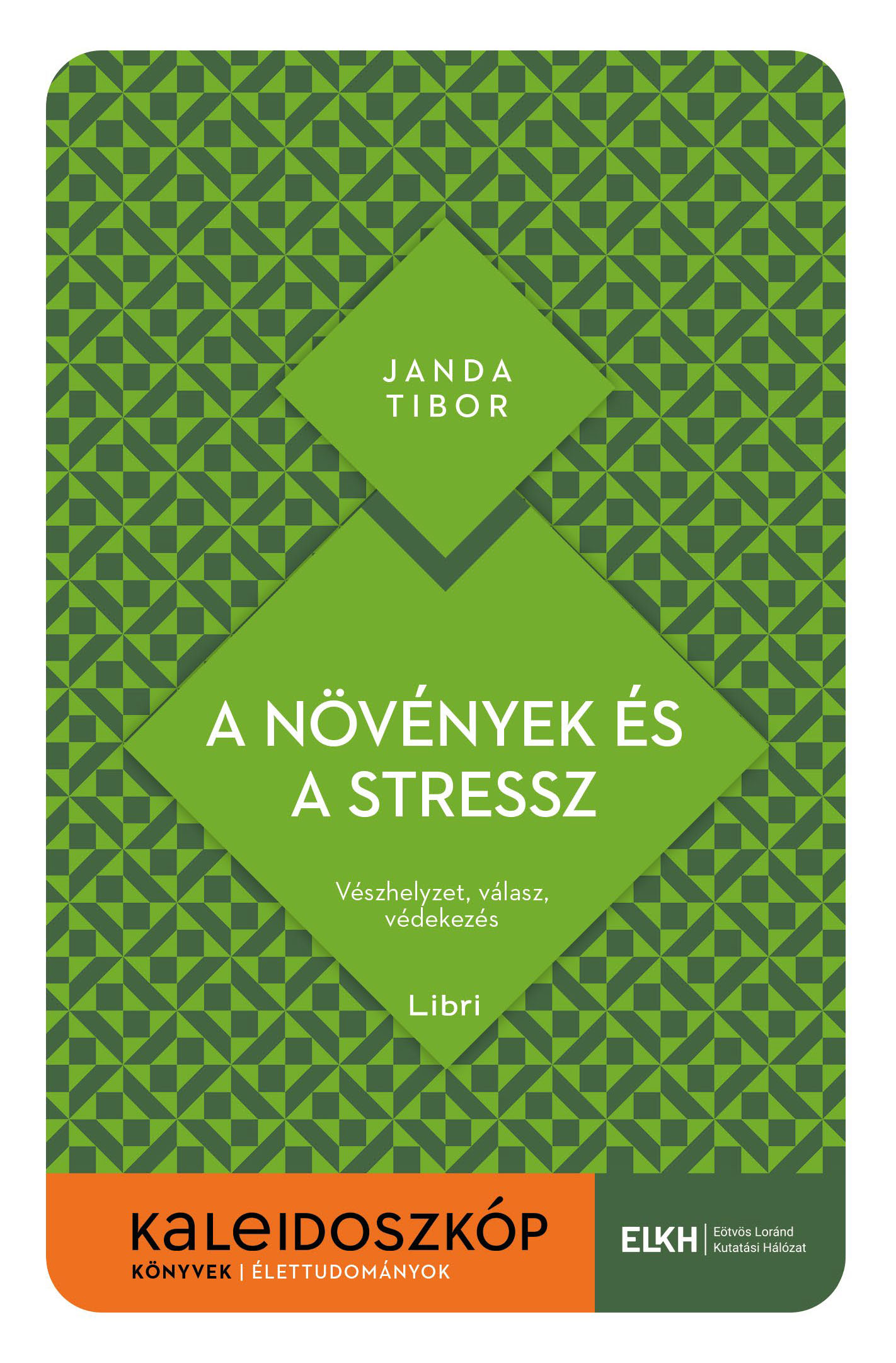
Can plants experience stress? Yes. Of course, they face different challenges than we humans do. Nevertheless, their lives are not easy: they have to endure a wide range of harmful effects, whether they come from their inanimate environment or from some pathogenic living organism, while being rooted in one place and having minimal room for movement.
How do plants defend themselves? What do they know that we don't? And how could we help them become more resistant to stressors? This book seeks answers to these questions. This knowledge is essential for increasing the yield and quality of plant products, and thus finding a solution to the problem of feeding the growing population of humanity.
Tibor Janda is a biologist, doctor of the Hungarian Academy of Sciences, and head of the Plant Physiology and Metabolomics Department at the Agricultural Institute of the Centre for Agricultural Research. His areas of expertise include the stress physiology of economic plants, abiotic stress, oxidative stress, photosynthesis, signal transduction, and light regulation.
For more information about the book please visit: https://www.libri.hu/konyv/janda_tibor.a-novenyek-es-a-stressz.html
Jenő Kontschán: Little Acarology ‒ The Secret Life of Mites
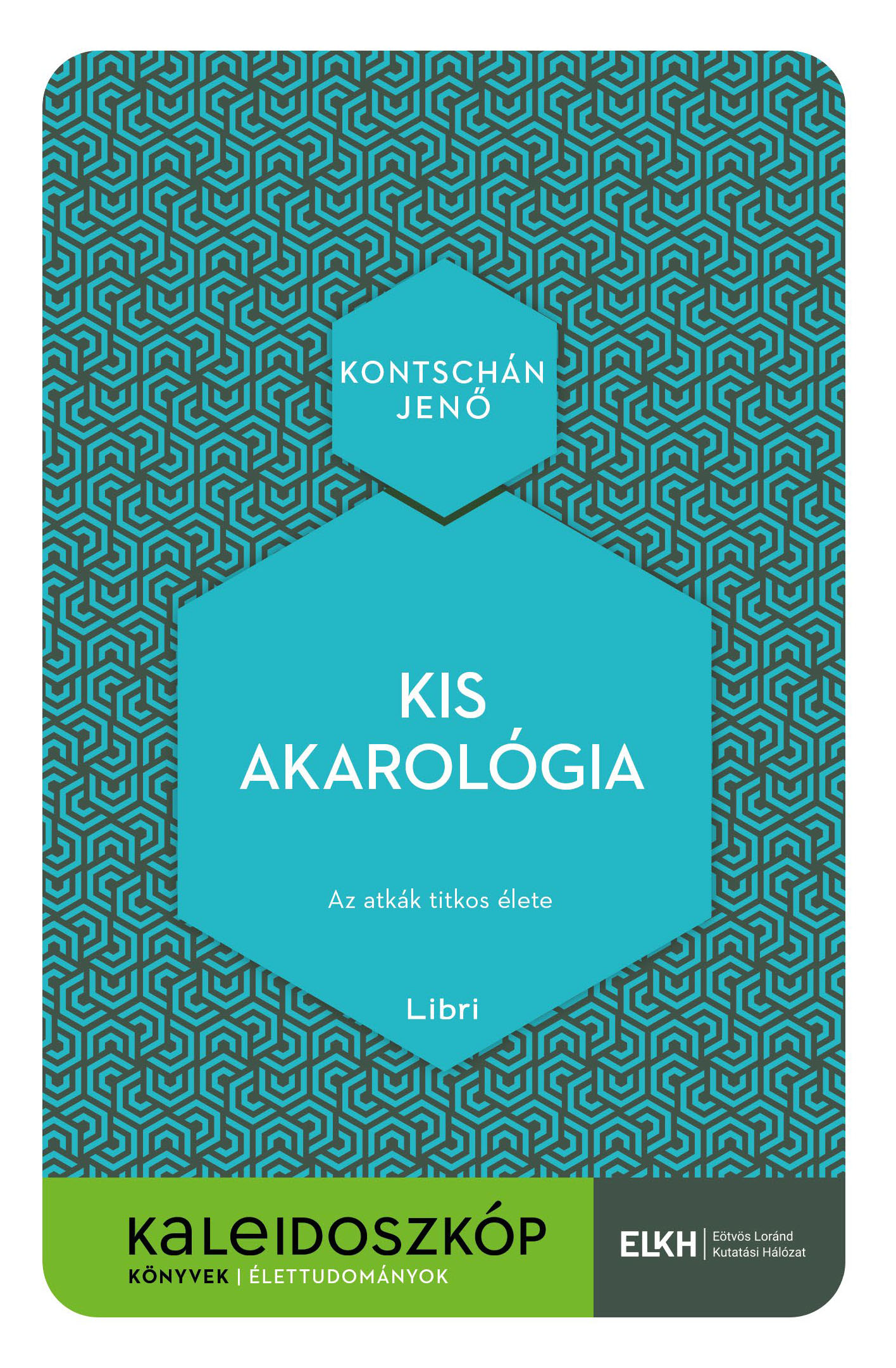
Most of us know relatively little about the small representatives of the living world, mites. However, these tiny creatures have been with us everywhere for a long time: in our gardens, on our furniture, and sometimes as unwelcome guests in the flour stored in our pantry. Some species can cause considerable annoyance, while others play a huge role in the fight against pests or even in plant protection.
Little Acarology takes us on an exciting journey into the incredibly rich, hitherto unknown world of mites. The pocketbook introduces the most important groups of mites, their structure and lifestyle, and then addresses how these tiny animals can become our allies.
Jenő Kontschán is a doctor of the Hungarian Academy of Sciences, director and scientific adviser of the Plant Protection Institute of the ELKH Centre for Agricultural Research, a research professor at the Department of Plant Sciences of the Széchenyi István University, and discoverer and first describer of more than 300 mite species. His main areas of research are the mite fauna of agricultural areas, the taxonomy, ecology, and zoogeography of mites, and acarology in plant protection.
For more information about the book please visit: https://www.libri.hu/konyv/kontschan_jeno.kis-akarologia.html
Gergő Pintér: The Hidden Building Blocks of Numbers ‒ The Primes
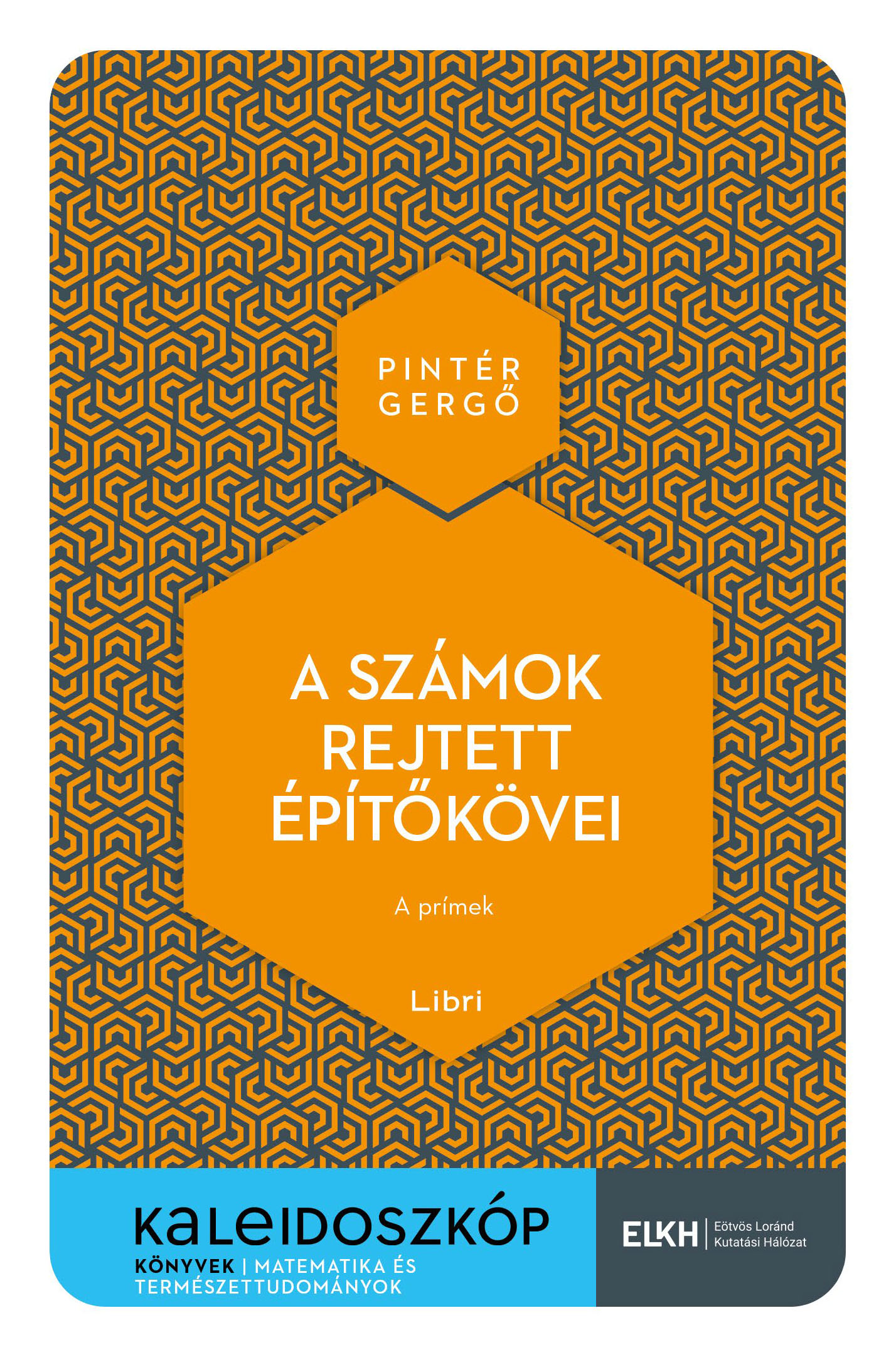
Numbers are everywhere: when managing finances or designing buildings. Prime numbers supposedly play a very important role among numbers. But then, how is it that we still don't come across them? Or do we just not notice them? How do prime numbers cut through the monotony of numbers? What is their connection to musical notes and internet encryption?
This book seeks answers to these questions, while also showing how closely mathematics is intertwined with our lives, worldview, and how it impacts our daily routine. In this way, readers can discover the freedom and creative power of this often considered rigid and dry science.
Gergő Pintér is a mathematician and research fellow at the ELKH Alfréd Rényi Institute of Mathematics. He practices and teaches mathematics at all levels. He earned his PhD in topology and singularity theory and is currently studying the topological properties of quantum systems with a group of physicists. He is interested in the connections between different fields and created an entertaining festival genre to bring “higher” mathematics closer to a wider audience within the framework of the MateMorphosis lecture series.
For more information about the book please visit: https://www.libri.hu/konyv/pinter_gergo.a-szamok-rejtett-epitokovei.html